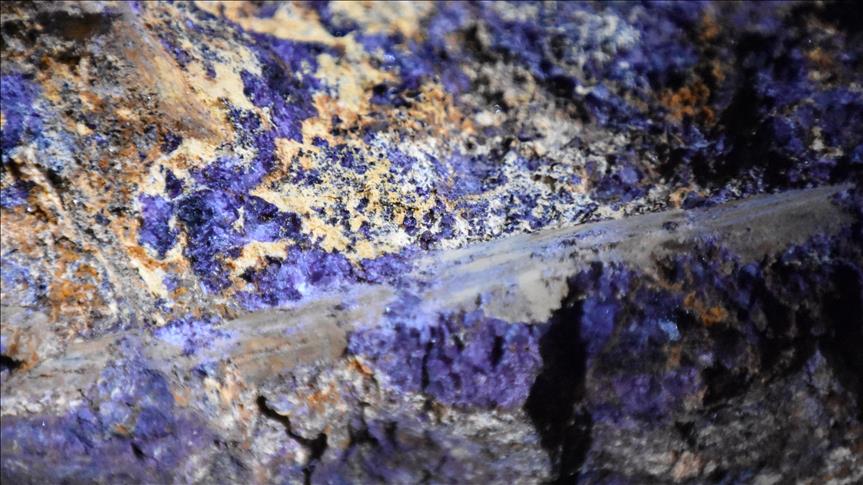

By Anadolu Agency
China’s dominance over rare earths could cast a shadow over the US-based program developed to create a transparent pricing system for critical minerals, according to Sait Uysal, the founder of the Turkish Critical Minerals Initiative.
The ongoing global trade disputes among developed countries stem from China’s supply of rare earth elements, which Japan banned in 2010 after seizing Chinese fishing vessels.
China’s prohibition of rare earth element exports followed this incident, leading to ongoing tensions among developed countries over global raw material trade.
Along with the prohibition of certain rare earth exports, China, the world’s largest producer and processor of rare earths, has further restricted access over the past year to technology used to extract and separate rare earths, which are crucial for the green energy transition.
In an attempt to undermine Chinese dominance on rare earths, the US Defense Advanced Research Projects Agency (DARPA) developed the DARPA Open Price Exploration for National Security (OPEN) program, which is designed to be carried out jointly with the US Geological Survey (USGS).
OPEN aims to increase supply chain resilience and national security by encouraging the development of technologies that will be used to increase transparency in critical mineral pricing, supply, demand and capacity forecasts.
The program also targets the analysis and subsequent cost predictions of commercial and publicly available information to arrive at accurate supply and demand forecasts using advances in time series forecasting, economic modeling, and machine learning.
However, with China’s dominance in the sector not only in mining but also on the basis of processed products, Uysal stressed the difficulty in either creating or reporting on a transparent pricing mechanism in the market.
He further noted the complication of meeting demand in this market as it is still in a state of flux and has not yet reached maturity with the transition to green energy, requiring a long-term approach to the production of rare earth elements.
‘When you add the trade wars on top of all this, the situation becomes even more serious. Trade wars cause fluctuations and instability in the market for political and strategic purposes. This prevents the formation of a stable market and transparent pricing mechanism,’ Uysal said.
– ‘China plays regulatory or preventive role in sector’
According to Uysal, although China has historically used its dominance over critical minerals as a weapon, it also plays a regulatory or preventative role by manipulating market pricing mechanisms to preserve its leadership.
He explained that China achieves this by limiting the export of some raw materials that it controls, which then leads to cheap costs domestically but high prices overseas, giving its own producers a cost advantage.
The only way that another country can compete with China in the production of critical raw materials is to drop prices to render projects financially unfeasible for China.
Another strategy that China uses is illegal mining by bypassing production quotas, Uysal said.
‘Although there is a quota in the production of rare earth elements in China, that is, a limit for production, the amount traded or used in the market is above this,” he said.
This illegal mining ensures that rare earth prices remain low, making projects in this area uneconomical for foreign industry players apart from Chinese participants.
He further stated that in the event of any political tension, the Chinese state intervenes in these illegal mines that it normally turns a blind eye to, causing price rises or a halt in sales to the countries where it has granted export permits.
We use cookies on our website to give you a better experience, improve performance, and for analytics. For more information, please see our Cookie Policy By clicking “Accept” you agree to our use of cookies.
Read More